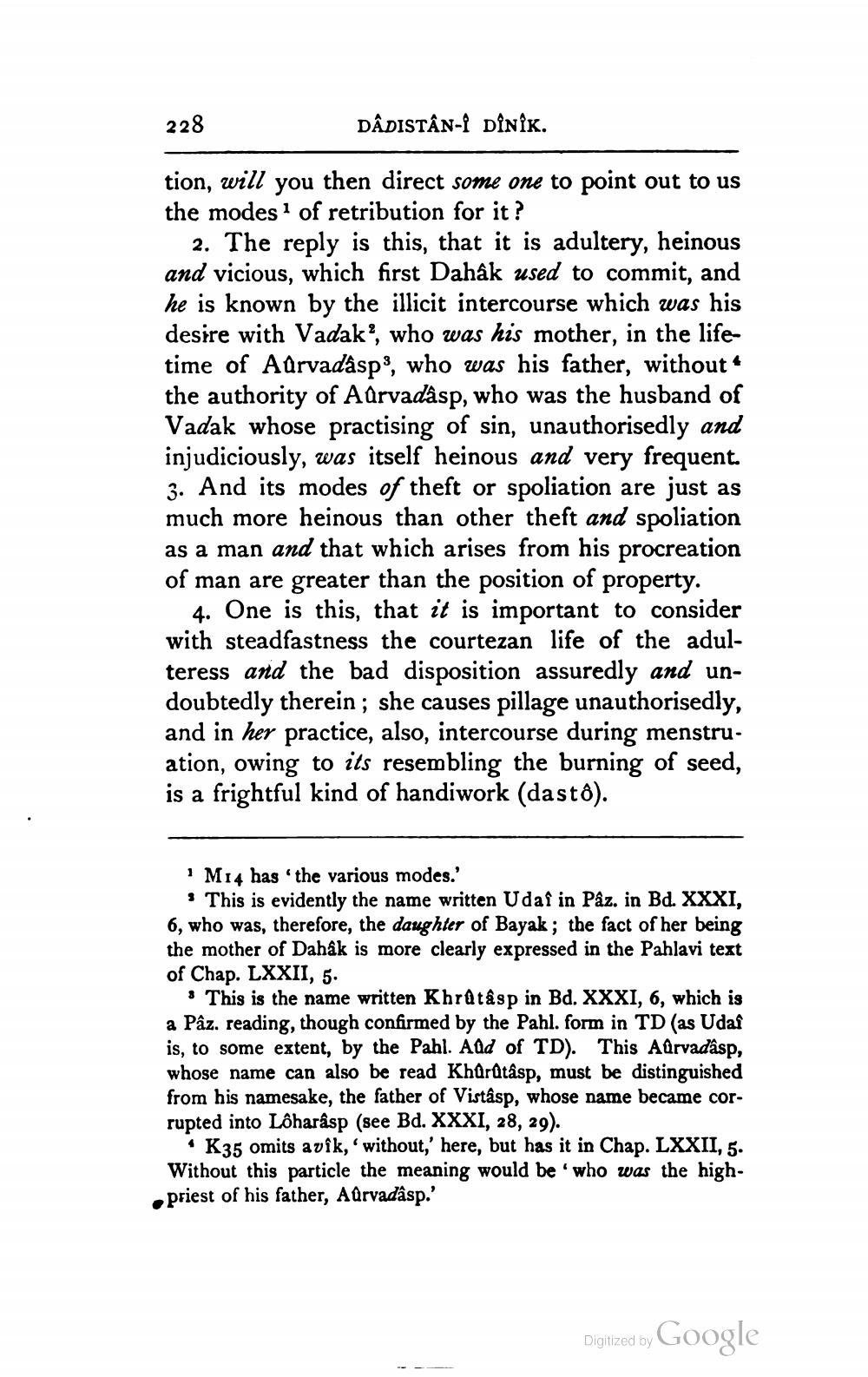________________
228
DÂDISTÂN-I DÎNÎK.
tion, will you then direct some one to point out to us the modes of retribution for it?
2. The reply is this, that it is adultery, heinous and vicious, which first Dahâk used to commit, and he is known by the illicit intercourse which was his desire with Vadak?, who was his mother, in the lifetime of Adrvadasps, who was his father, without the authority of Adrvadásp, who was the husband of Vadak whose practising of sin, unauthorisedly and injudiciously, was itself heinous and very frequent. 3. And its modes of theft or spoliation are just as much more heinous than other theft and spoliation as a man and that which arises from his procreation of man are greater than the position of property.
4. One is this, that it is important to consider with steadfastness the courtezan life of the adulteress and the bad disposition assuredly and undoubtedly therein; she causes pillage unauthorisedly, and in her practice, also, intercourse during menstruation, owing to its resembling the burning of seed, is a frightful kind of handiwork (dasto).
1 M14 has the various modes.'
: This is evidently the name written Udaî in Paz. in Bd. XXXI, 6, who was, therefore, the daughter of Bayak; the fact of her being the mother of Dahâk is more clearly expressed in the Pahlavi text of Chap. LXXII, 5.
: This is the name written Khr@tâsp in Bd. XXXI, 6, which is a Pâz. reading, though confirmed by the Pahl. form in TD (as Udai is, to some extent, by the Pahl. Aud of TD). This AQrvadásp, whose name can also be read KhQrQtâsp, must be distinguished from his namesake, the father of Vistasp, whose name became corrupted into Lôharasp (see Bd. XXXI, 28, 29).
* K35 omits avik, without,' here, but has it in Chap. LXXII, 5. Without this particle the meaning would be 'who was the highpriest of his father, Adrvadásp.'
Digitized by Google




